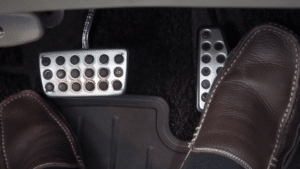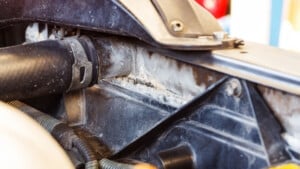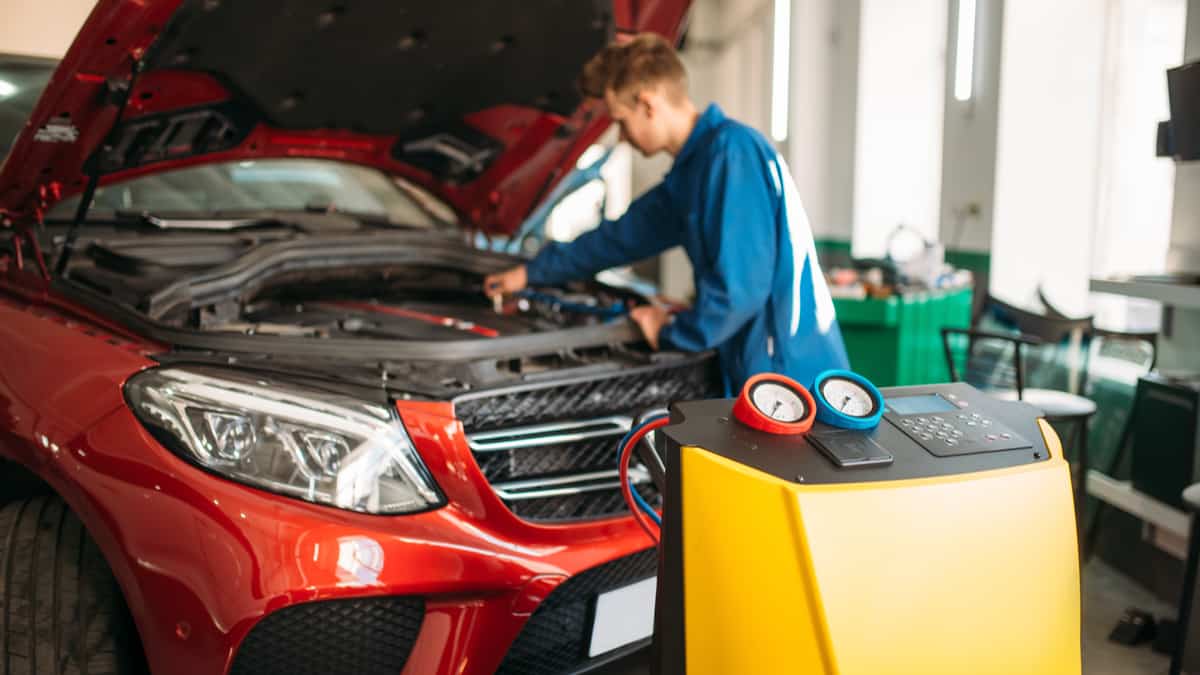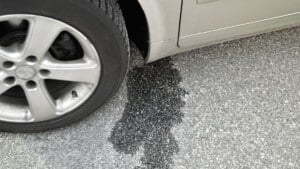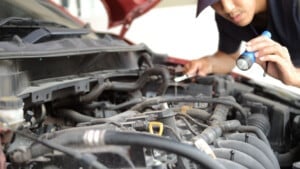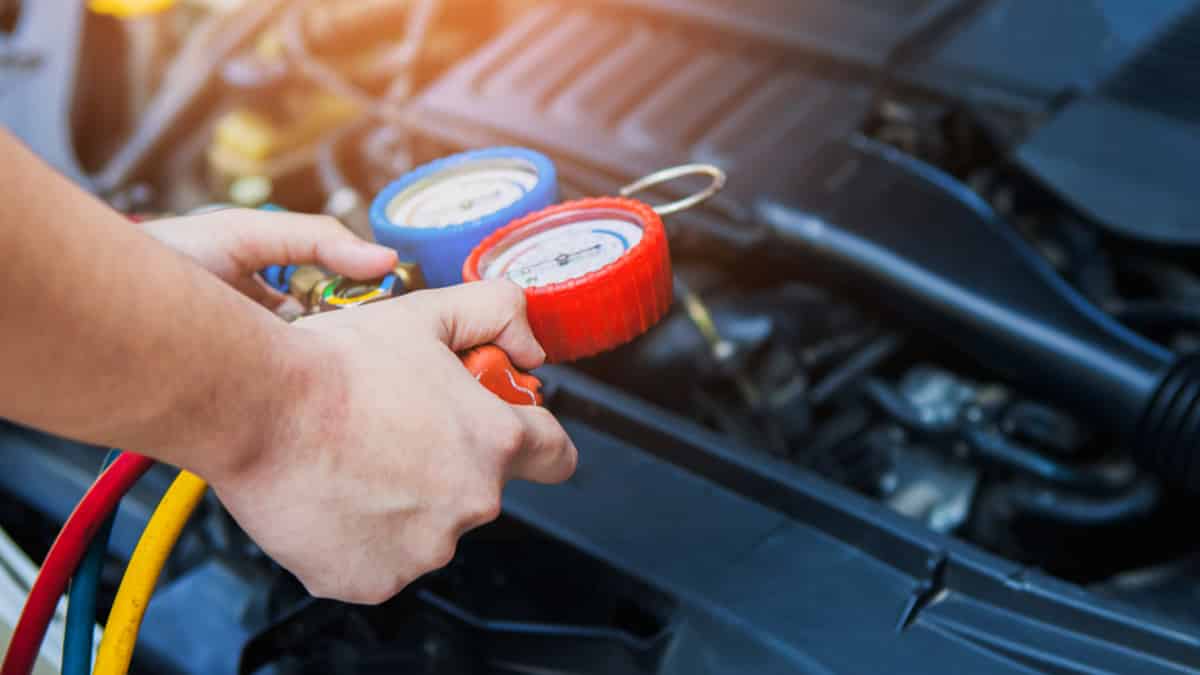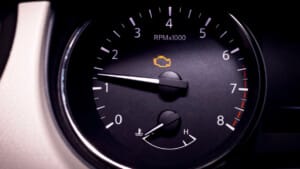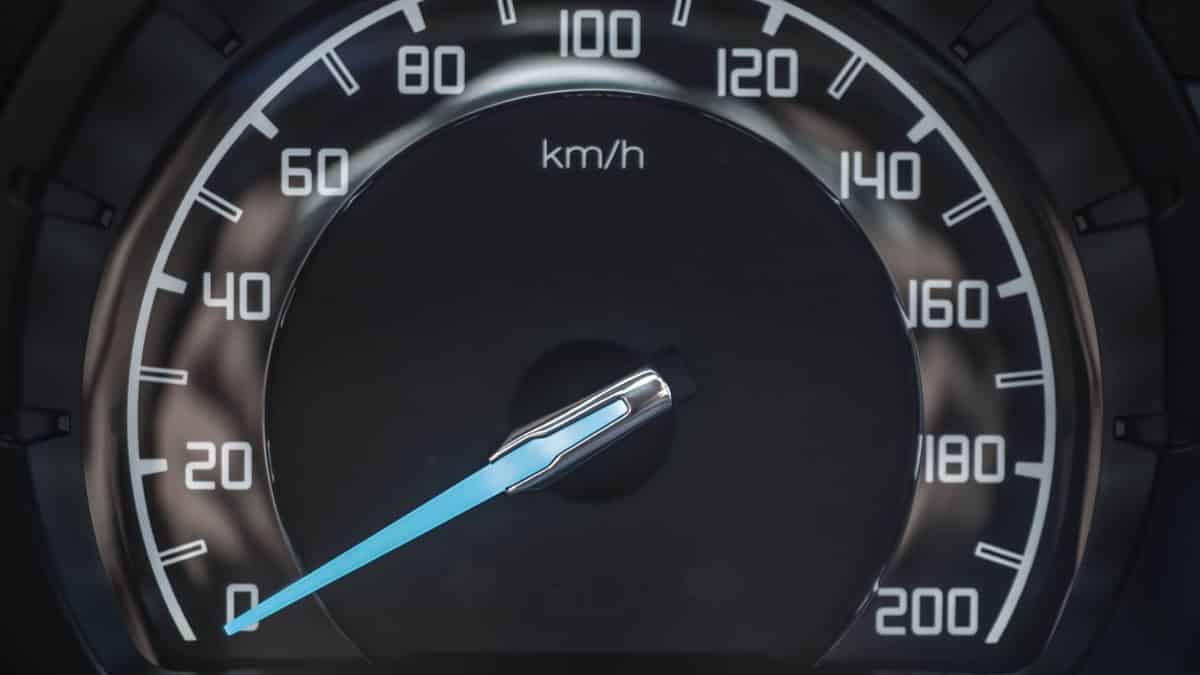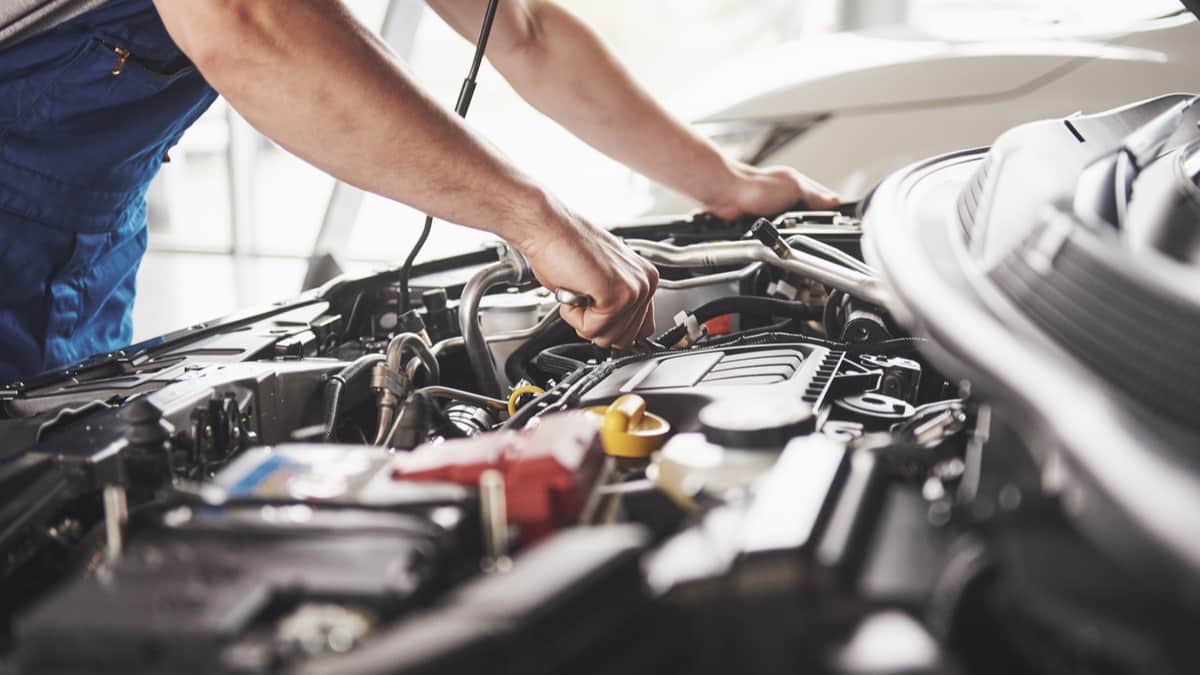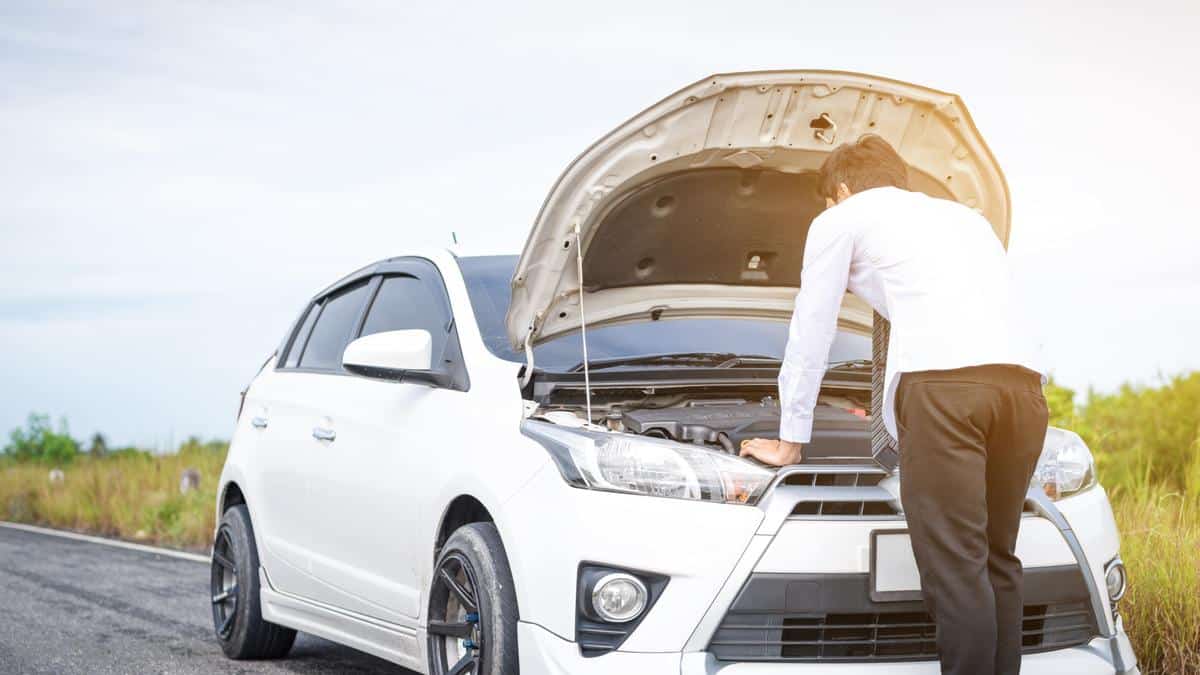Everyone knows how damaging it can be to have a car engine overheat. It’s a situation that should be prevented at all costs. So, what do you do if the car overheats when the AC is on and you can’t seem to stop it?
First, you want to figure out what’s causing the problem. We review the top causes and show you how to fix them. We also answer a few questions you might be asking yourself.
Causes Of Car Overheats When AC is On
If the car only overheats when the air conditioning is on, the engine load might be too high. You could also have mechanical issues, such as a failure with the condenser, an overloaded compressor, a defective temperature sensor, or a bad fan. Otherwise, it might just be an incompetent AC system.
Here is a more detailed list of why your car overheats when the AC is on.
1. Increased Engine Load

Your car’s engine is only able to handle so much. If you are pushing your car beyond its limits, the motor can start to overheat. Running the air conditioning adds to the load that’s put on the engine. If you do this in conjunction with towing heavy loads up steep inclines, the temperature may slowly climb.
If you’ve ruled out any mechanical failures, you may want to look at how you are using your vehicle. It’s very possible that you are expecting too much from the car you have.
2. Condenser Installed In Front Of Radiator
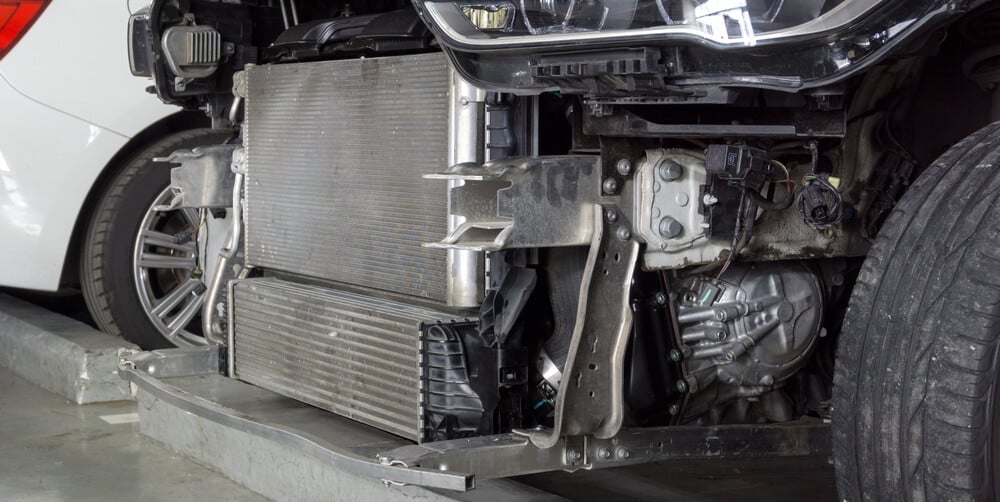
With the condenser in front of the radiator, cool air can be stolen from where it needs to go. Without enough cold air in the radiator, it becomes more difficult to keep the engine temperature down.
Additionally, condenser failure is always possible. Dirt and contaminants tend to build up in the fins of the condenser. When the fins become clogged, heat transfer doesn’t occur as efficiently.
3. Incompetent Cooling System
If there’s nothing wrong with the condenser, you may just have an incompetent cooling system. A faulty water pump can often be blamed. When the water pump stops working as it should, heat can’t be dissipated well.
It’s also possible that there’s not enough coolant in the tank for proper cooling function. In other situations, a lack of AC refrigerant could be putting more stress on the system than what’s needed.
4. Overloaded AC Compressor
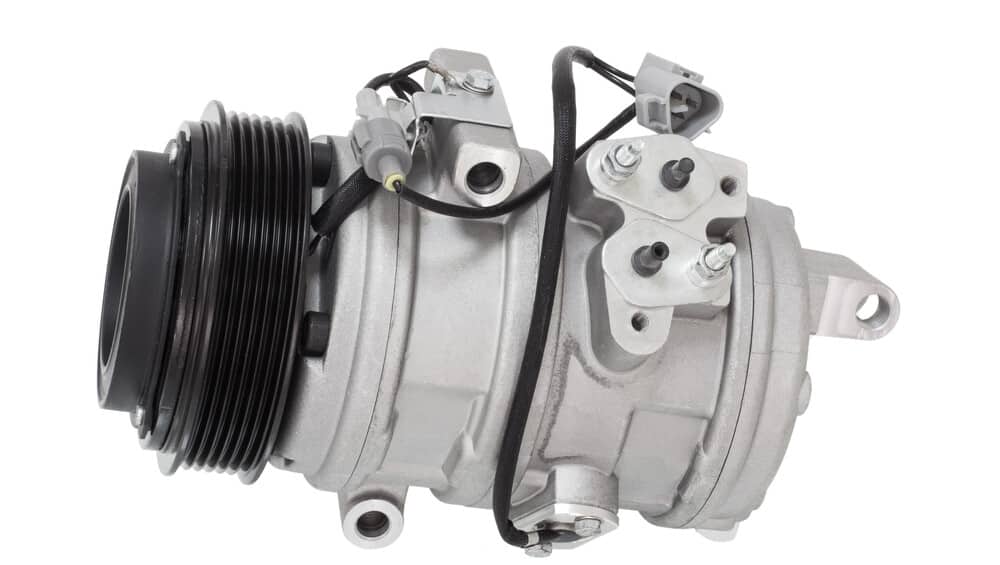
When the AC is on, the compressor puts additional load on the engine. You can see this by watching your RPMs when you turn on the AC.
If the compressor seizes or the accessory belt stops turning, failure can occur. Very quickly, the engine starts to overheat.
5. Bad Radiator Fan
The cooling fan is required to keep the temperature down. If the cooling fan fails, the engine is going to overheat. However, you may not notice it as much when you are driving down the highway because the car’s speed keeps air flowing.
It’s going to be most noticeable when you are stuck in traffic and running the AC. It can also happen if you start to drive slower and the radiator can’t get the air it needs.
RELATED: 5 Symptoms Of A Bad Radiator Fan
6. Defective Engine Coolant Temperature Sensor
The engine coolant temperature sensor is responsible for letting the control module know when the cooling fans should be turned on. If this fails, the engine could overheat.
When the temperature sensor doesn’t send the right signal, coolant doesn’t flow as it should. This situation can get even worse if you are using the AC and putting an excessive load on the engine.
How To Fix A Car That Overheats When AC is On
Once the car begins overheating, you want to diagnose the problem immediately. It’s important to keep the engine from overheating because permanent damage can quickly occur. Here are a few steps to help you figure out what’s going on.
1. Check Coolant Level
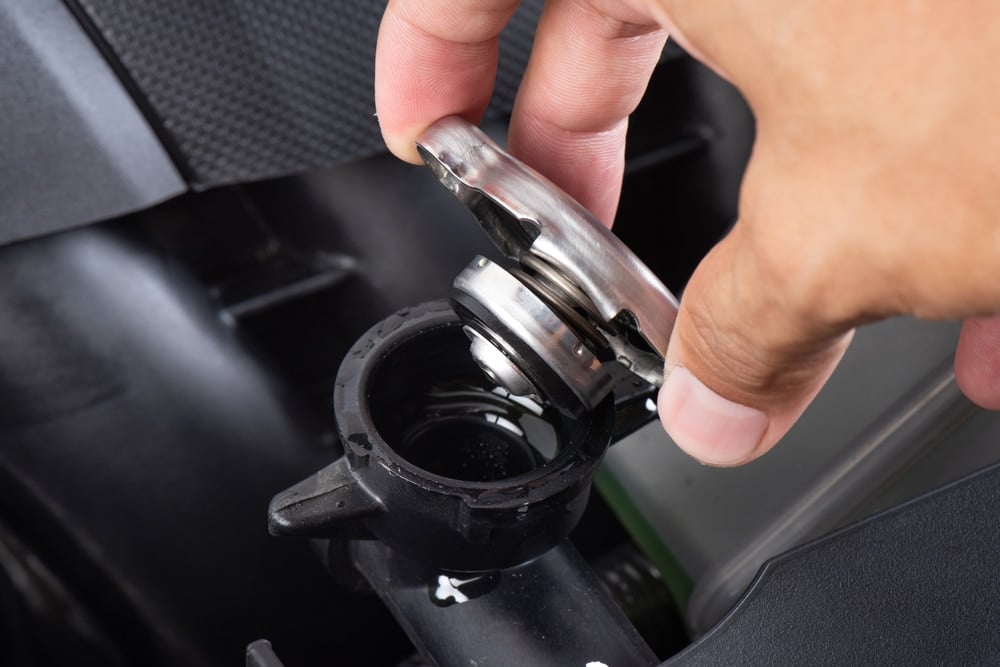
Before you go through any extensive steps, it’s best to start with the coolant level. It’s very possible that you just need to put a little more in.
- Only check the coolant when the vehicle is cool. Hot liquid is pressurized and can lead to damage.
- Locate the coolant reservoir. It’s under the hood, typically on the front or side of the engine.
- If the reservoir is transparent, you should be able to see the levels on the side. There should be a “Cold” and “Hot” line imprinted on the side.
- With the engine cool, the liquid should reach the Cold line. If not, you need to add more coolant.
- Take the cap off and add the right antifreeze mixture for your vehicle.
If the coolant is low, you must also examine the system for leaks. Over time, gaskets, seals and hoses can all become worn out, allowing fluid to seep out. It’s important to fix these leaks before adding more fluid, or you will end up in the same boat later.
2. Make Sure the Radiator and Condenser are Not Damaged
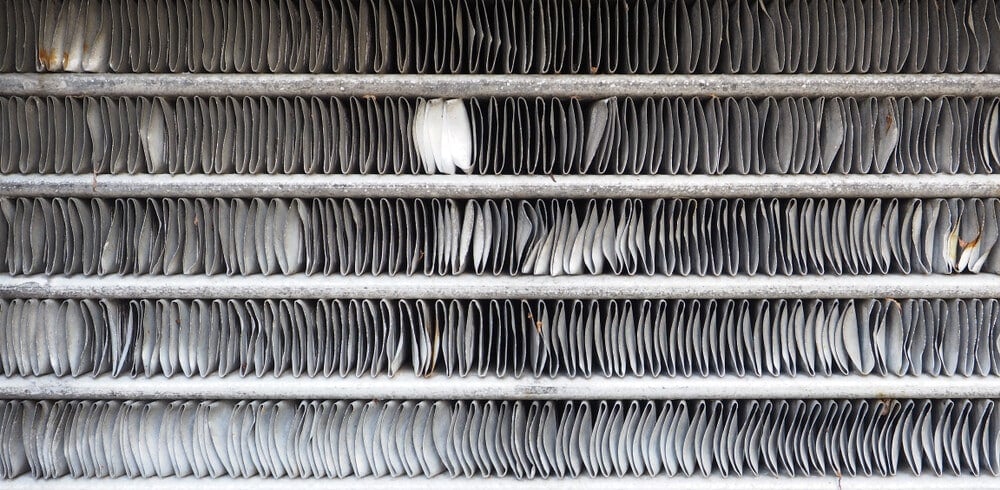
Next, you want to perform a check of the radiator and condenser. Here are some tips to consider.
- Use a flashlight. It can be dark around the radiator tank.
- Inspect the radiator and condenser for any wet spots. This problem indicates seepage and damage.
- Look at the radiator core for any signs of leaks.
- Inspect the upper and lower hose clamps on the radiator. Tighten them if necessary.
- Check the fins of the radiator and condenser and ensure they are not clogged or damaged.
- Open the oil dipstick to ensure there’s no coolant leaking into the motor.
If you notice any damage, have it repaired right away. For the cost of a radiator or condenser, you can save yourself from a much higher bill than with an engine replacement.
3. Inspect the Radiator/AC Condenser Fan
Most of today’s radiators have an electric fan. With these fans, you can use a multimeter to test operation.
- Turn off the car engine.
- Locate the fuse box. Normally, it’s under the dash.
- Set the multimeter to DCV (Direct Current Voltage). Select the range that’s best for the 12V circuit.
- Put the negative multimeter lead to the negative battery terminal post.
- Connect the red multimeter lead to the fuse contact for the radiator fan.
- If the reading is around 12V, the fuse is fine. Otherwise, a blown fuse will give you a 0V reading on one side. A 0V reading on both contacts means there’s no power coming to the fuse either.
Aside from a blown fuse, the fan may also not be working because there’s something holding it up. Physically inspect the fan for any debris holding it up and clean it out when appropriate.
RELATED: Radiator Fan Is Not Working? (7 Causes & How to Fix)
4. Refill and Diagnose the AC System
If a lack of AC refrigerant could be to blame, refill it. You want the AC system working its best to reduce the load on the engine.
Aside from this, you want to fix any mechanical issues you’ve found. Remember to reference your car’s service manual for the proper steps for your vehicle.
RELATED: AC Recharge Cost (Average Prices by Model)
5. Connect an OBD Scanner
If there are warning lights on the dashboard, your code scanner can help you figure out what’s wrong. Plug your compatible OBDII scanner into the port under the steering wheel.
It should reveal a code or codes that can be used to determine the problem. Reference the information you receive with our online trouble code library to fix the issues.
6. Contact a Professional
Not everyone understands the basics of the cooling system and that’s okay. If you aren’t sure where to start, reach out to a local mechanic for more help.
Even if you can figure out what’s wrong, there could be times when the issue is over your head or you don’t have the equipment needed. There’s no shame in getting some help to ensure the fault is repaired properly.
Can a bad AC compressor cause a car to overheat?
The compressor isn’t going to cause a direct fault that overheats the engine. However, when the compressor clutch engages without proper operation, there will be an extra strain on the engine. This problem can quickly lead to an overheating engine.
Can an overcharged AC cause an overheating engine?
When the air conditioning system is overcharged, the compressor can fail. Any damage to the compressor can put extra strain on the engine. If it’s not repaired right away, the engine may start overheating because of the stress.
Does the car AC make the engine hotter?
The air conditioner does put additional load on the engine. If the engine is already prone to overheating, having to work harder may throw it over the edge. In some cases, you can stop the engine from overheating simply by turning off the air conditioner.
Does turning off the AC prevent overheating?
If there’s a failure in the cooling system, the AC system isn’t going to make a difference or change the problem. However, you can reduce the load on the engine by turning off the AC. This simple change may give you a little more time to drive home without overheating the motor.
At the first sign of an overheating engine, you want to take action. Your quick attention can make the difference between fixing a small mechanical problem and having to replace the engine. Wouldn’t you rather add a little coolant or replace a small part versus giving up your vehicle for the engine to be rebuilt?
Our guide provides you with the simple steps to work through the overheating issue. Whether it’s related to the air conditioner or not, you should be able to get back on the road quickly.
Categories: Air condition, Coolant, Troubleshooting

